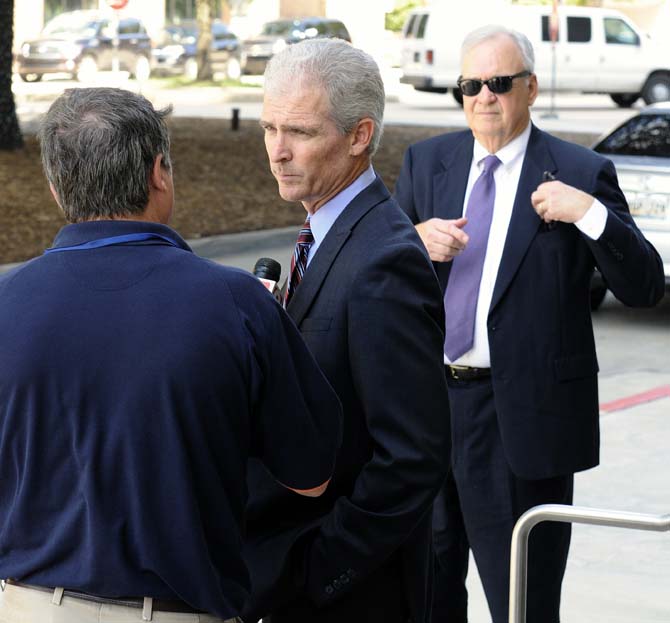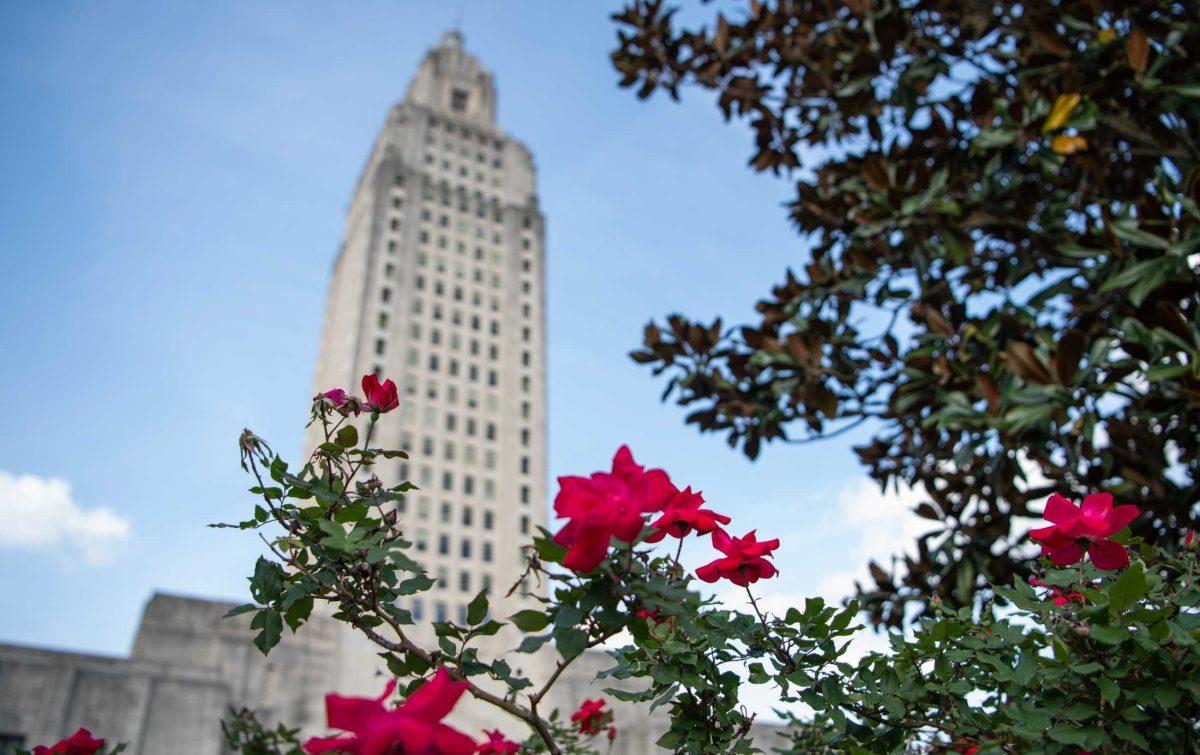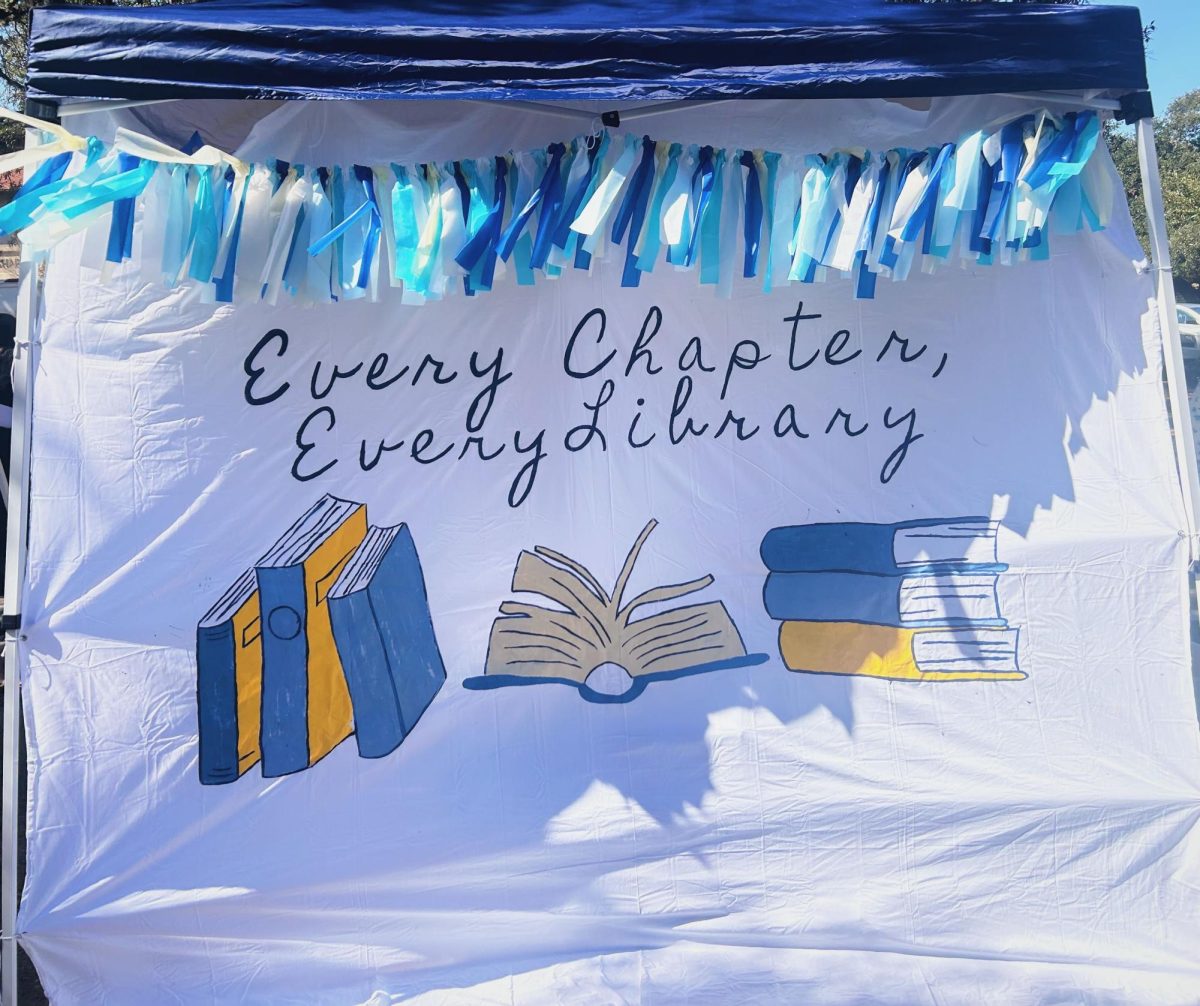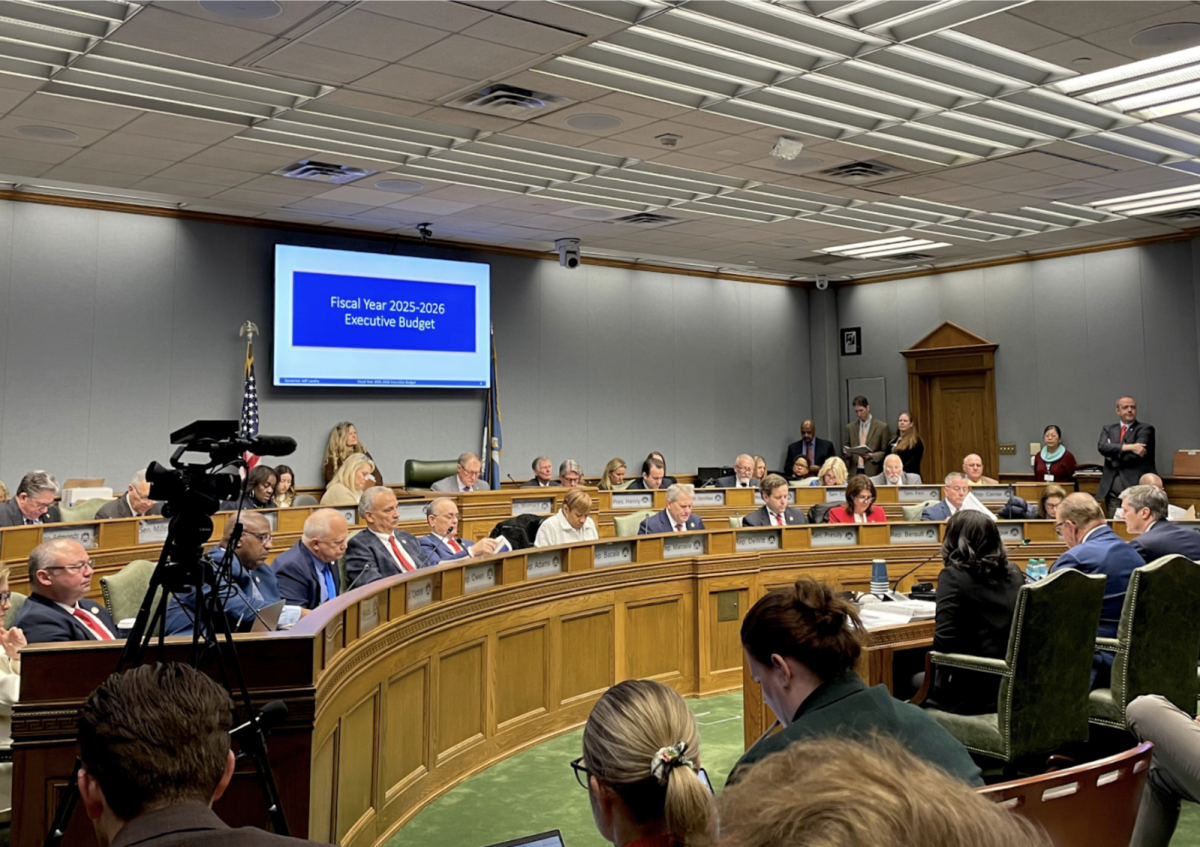The University appeared in the Louisiana First Circuit Court of Appeals on Tuesday to contest the decision that it must release the names of presidential search candidates.
The Advocate and NOLA.com | The Times-Picayune initially sued the University when it failed to release information about potential candidates for the presidential search prior to the hiring of LSU President F. King Alexander. Baton Rouge District Judge Janice Clark ruled in favor of the media outlets in April 2013, saying the documents fell into the category of public records.
Clark also ruled the University was in contempt of court in August 2013 after it failed to turn over the candidate information, imposing a $500-per-day fine from the day she made her first ruling in April. The University submitted the president’s search documents to Clark in September 2013 after racking up more than $50,000 in court fees on top of what is owed in attorney fees.
Shelby McKenzie, lead legal counsel for the LSU System, said the University would not have to pay the court fees, should the appellate court rule in the University’s favor.
It has been 13 months since the original filing, and the issue of who else was considered for Alexander’s position is old news at this point, said Lori Mince, the media outlets’ attorney, but the goal was to prevent similar events from happening in the future. Both rulings were argued in court Tuesday.
Jimmy Faircloth, the University’s attorney, said the University originally did not release information about all of those considered for the president’s position because the search committee was advised it could be detrimental to the careers of those who were considered. Faircloth said when the University had an official applicant, who expressed intent to take the position if it was offered, his name was released.
Faircloth also said the University was hesitant to release the candidate information after Clark’s ruling because if it was made public, it could have harmed the University’s chances of appealing successfully.
McKenzie said under case law, when the documents called to question in a lawsuit are produced, they render the appeal moot. McKenzie said he does not believe the University should be forced to pay the fines imposed by the contempt ruling because of the case law.
Mince compared the current lawsuit to one The Advocate filed against the University in 2001 in which the candidates for the athletic director’s position were not released by the University. In the 2001 case, the University entered a settlement agreement and released the candidate’s names prior to any legal proceedings. The agreement included a promise to cooperate with the newspaper in similar instances in the future.
“This case is just another chapter in an endless case of public entities trying to keep hiring a secret,” Mince said.
A decision will be made regarding the University’s appeal of Clark’s rulings in the coming weeks.
University appears in La. Court of Appeals
April 1, 2014
LSU System’s Attorney Jimmy Faircloth gets interviewed after a new hearing in The Times-Picayune and The Advocate vs. LSU lawsuit Monday Sept. 16, 2013, at the 19th Judicial District Courhouse, Baton Rouge, La.
More to Discover










